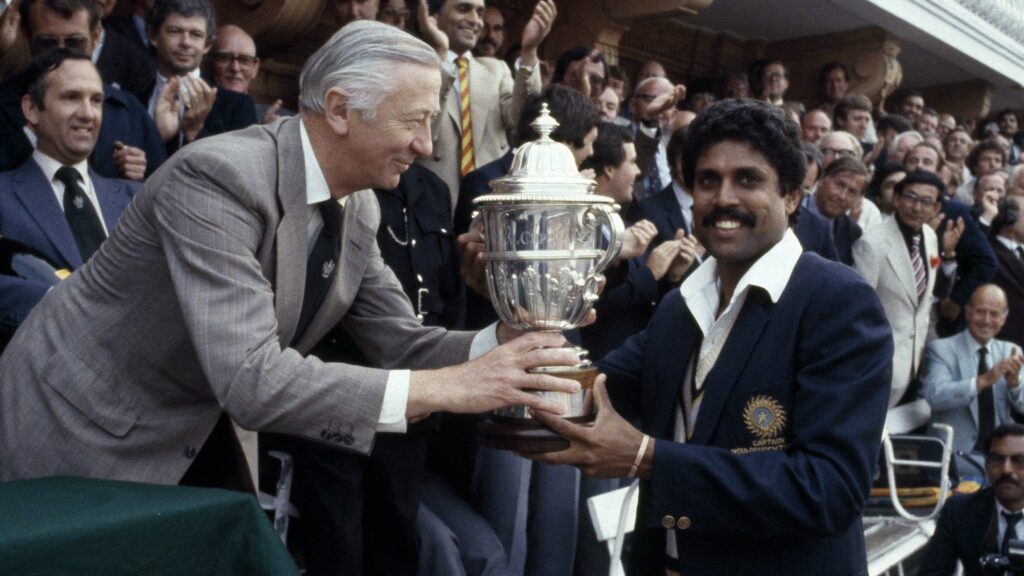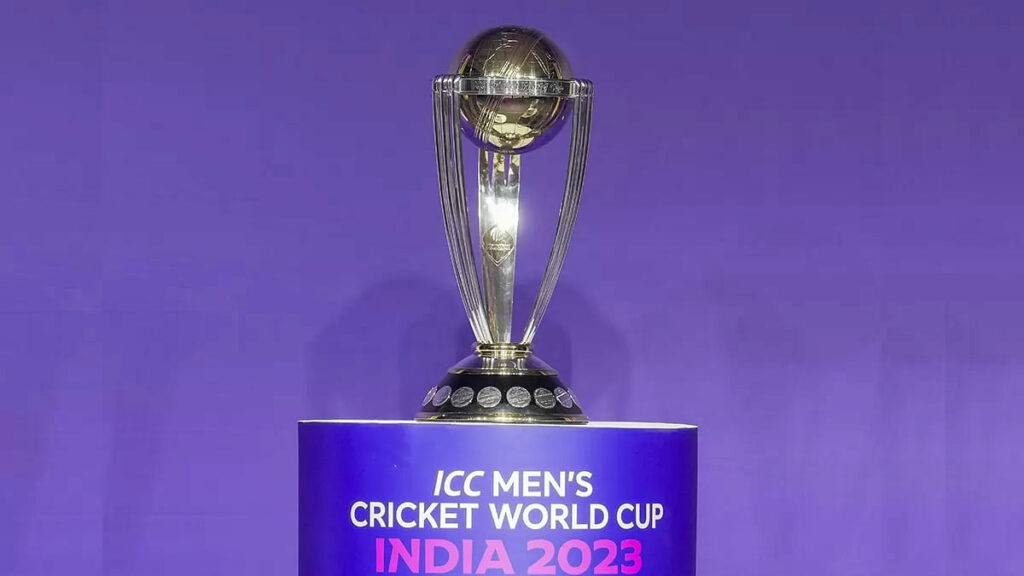Table of Contents
The 2023 ODI World Cup is scheduled to take place between October 5 and November 19. The cricketing giant India is set to host the whole tournament on its own for the first time.
The previous editions were co-hosted by India and Pakistan in 1987, the trio of India, Pakistan, and Sri Lanka in 1996, and the trio of India, Sri Lanka and Bangladesh in 2011.
Here, we will look at the previous editions of the competition and how a few players were able to leave an indelible mark in the tournament’s history over the years.
Tracing the World Cup’s origins
Cricket was always seen as a bilateral sport, with England and Australia acting as the torchbearers for the game in the 19th century. With the onset of the 20th century, cricket was included in the 1900 Olympic Games, where Great Britain emerged as champions after defeating France in the final.
Taking a cue from that, the 1912 Triangular Tournament was organised by the England Cricket Board, with Australia and South Africa taking part as the visiting nations. While the Proteas were very new to playing Test cricket in English conditions, Australia’s off-field issues gradually handed over the trophy to the hosts. Interestingly, the English cited it as an unsuccessful tournament due to low turnout and several matches getting washed out due to a wet summer in the region.
After the failure of multilateral Test events, cricket fans were desperate for different nations to take part in a Sunday League-esque tournament held in England.
The inception and early years
The efforts of several national cricket boards came to fruition as the first One-Day multilateral contest, known as the Prudential Cup, due to sponsorship reasons took place in England in June 1975.
England was naturally selected as the host nation, with other Test-playing nations, Australia, West Indies, India, Pakistan, and New Zealand participating in the eight-team tournament along with Sri Lanka and a composite team of East Africa.
The Windies bagged the 1975 Prudential Cup after defeating Australia by 13 runs in the 1975 final and repeated the feat in 1979 by beating England by 92 runs in the final.
The ICC, known as the International Cricket Conference at that time, decided to make it a quadrennial event after the relative success of the first two editions. In 1983, India shocked every participating nation by stunning hosts England in the semi-final and then going on to defeat two-time champions West Indies in the final to win the trophy.

Consequently, Australia, Pakistan, and Sri Lanka won the next three World Cups with two of the three editions held in the Indian subcontinent while the 1992 version was jointly hosted by Australia and New Zealand for the first time.
Iconic moments and matches
There have been many performances which have been etched in the minds of the cricketing fans. It will be interesting to see whether some moments from the upcoming 2023 ICC ODI World Cup will also go down in the history books.
#3 Lance Klusener run-out
In the 1999 CWC, South Africa was on the brink of knocking out 1987 edition winners Australia from the tournament. All-rounder Lance Klusener hit consecutive boundaries in the last over and brought down the required equation to 1 run off 3 balls.
On the very next ball, Klusener hit it straight past the bowler, and the mid-off fielder got to the ball in a flash and lobbed it to the bowler. All this while, Allan Donald was ball-watching and suddenly realised that his batting partner had reached the bowler’s end.
The bowler ended up passing the ball to the wicket-keeper, who dashed the bails and ensured Australia reached the final, where they defeated Pakistan at the iconic Lord’s Stadium to clinch their second World Cup title.
#2 MS Dhoni’s towering six
In the 2011 final, India was cruising towards a victory after Gautam Gambhir’s crucial innings of 97 runs, and living legend MS Dhoni was there on the pitch till the end to provide the perfect finishing touch.
With 4 runs required off 11 balls, there was no need for a big shot, but the skipper’s monstrous maximum ensured India bagged the prestigious trophy for the second time, and Ravi Shastri’s words, “Dhoni finishes off in style. A magnificent strike into the crowd” were imprinted on every fan’s mind.
#1 World Cup final going down to a Super Over
The 2019 final between hosts England and New Zealand went down to the wire and promised a new champion, with both sides never lifting the coveted trophy before that day.
Chasing a target of 242 runs, England took the run-chase deep with 22 runs required off the last nine balls. Ben Stokes gave the English crowd what they wanted as he smashed two maximums off the next six balls and brought the equation down to 9 runs off 3 balls for a win.
The next ball bowled by Trent Boult was fired towards the mid-wicket region, and the throw from the deep hit Stokes’ bat and ran away to the fence gifting the English side 6 runs off a single ball. The next two balls saw two run-outs and the match went down to the Super Over.
Stokes and Jos Buttler decided to face the music in the super over and the duo collectively put up 15 runs on the board in six balls. For the Kiwis, James Neesham took it down to 3 runs required off 2 balls, and a deja vu moment happened. Buttler ran out Martin Guptill while trying to steal two runs off the last ball as the Englishmen won the tournament due to scoring more boundaries.
India’s golden moments
India has won the World Cup two times, the joint-most after record five-time winners Australia. The nation has seen many highs and a few lows throughout the history of the Cricket World Cup.
From India winning their first match against East Africa by 10 wickets to Kapil Dev running back and completing the historic catch of Sir Viv Richards to MS Dhoni taking India to a second glorious World Cup win, India has had its share of golden moments in the mega tournament.


